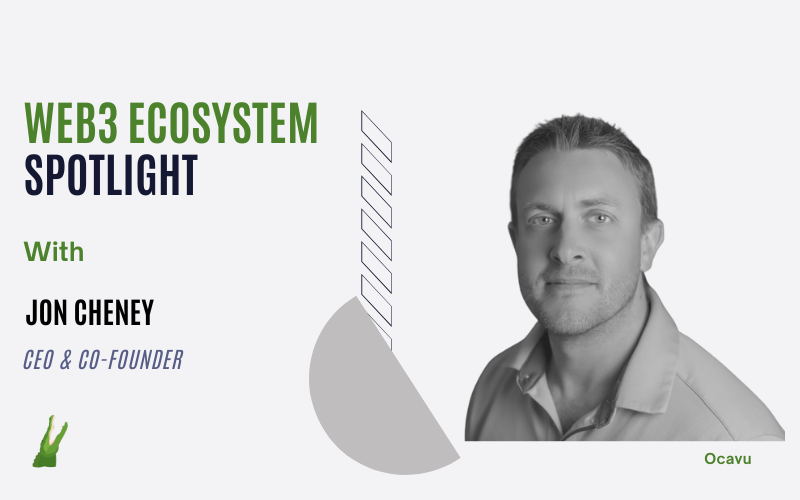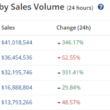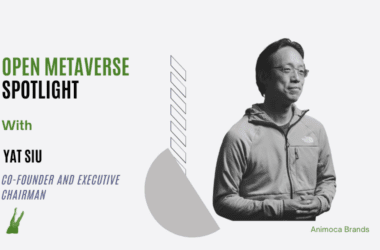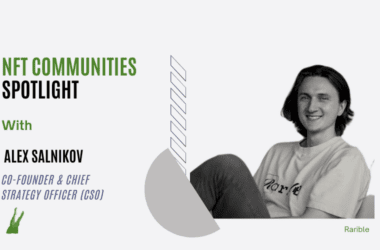Major sports organisations have recently been making headlines for jumping into Web3 to engage with their fans in new ways. As the emerging space grows, Web3 is constantly being touted as a new way for creators and sports organisations to build direct relationships with their fans.
While the big leagues are getting all the attention for partnerships with other major platforms, Ocavu, a Web3 ecosystem, sees potential in college athletics and how it student-athletes can benefit from Web3. Today, Ocavu announced that it is partnering with Brigham Young University Athletics (BYU) to launch CougsRise.com a fan engagement platform that allows BYU sports fans to support athletes through NFT experiences.
Officially launching on August 16, CougsRise.com will integrate NIL (Name, Image, Likeness) in a natively NCAA-compliant approach, allowing student-athletes to have an additional income source.
As the platform goes live today, we speak to Ocavu founder and CEO Jon Cheney as he shares his insights on how Web3 can make a positive social impact and his thoughts on NFT industry issues.
Please tell us about yourself and the story behind Ocavu.
I have always loved new technology and media. From being first in line to see a new movie to trying out a new video game or pre-ordering the latest iPhone – I certainly fall into the label of being an early adopter. Almost seven years ago, I decided to go all in on the entrepreneurial game and start something fun.
Ocavu originally started out as a company called Treasure Canyon, where we put on treasure hunts for the public that quickly gained traction. We decided in the same year to launch a digital version of those treasure hunts with an app we called Seek. With treasure hunters running worldwide a-la-Pokemon GO and looking for treasure chests in AR, we became a resource for helping companies navigate the new realities of AR, VR, and XR.
In 2018, we decided to leave the treasure hunts behind and focus 100% on enabling brands and retailers with 3D infrastructure to help create positive business outcomes with these XR technologies. With that shift to a B2B offering, our business took off. Over the past four years, Seek has become a global leader in scalable XR technologies, securing essential patents and partnerships along the way.
Last year, I began paying a lot more attention to Web3 technologies and started asking how we could support the NFT industry that was clearly having a moment. I saw a lot of problems but knew that there was some important technology underneath all the hype. So we began expanding our product focus and eventually launched an entire ecosystem to support brands trying to engage more with the next layer of the internet, which will be equal parts blockchain as well as 3D technology (some like to call the metaverse). With that expansion in focus to include Web3, we decided to rebrand to Ocavu, signaling how massive a change this will be for the world and our company as we help brands, influencers, sports teams, and more engage with this new paradigm.
What piqued your interest in the Web3 space and where did you first hear about it?
I first began dabbling in crypto about 7-8 years ago. I didn’t mortgage the farm to dive in, but I’ve made and lost plenty of money along the way! I think what really started getting me excited was the principle of decentralization that Web3 makes real. Ownership of anything (digital or physical), transparency, properly aligned incentives, and consensus of business decisions and arrangements are just some of the revolutionary concepts that Web3 brings to the world. I didn’t get swept up in the NFT craze and from the very beginning, warned about buying things with no inherent value, and during the entire process, I’ve been noting things that the Ocavu Network could do better to bring real value to people’s lives.
Please tell me more about how Ocavu is helping to empower Web3 projects with the tools the company provides.
At Ocavu we work with brands, sports teams, and creators to create better relationships with their fans through Web3. Through our recently announced Ocavu Network and Ocavu Network Token, we are able to provide easy-to-use tools that allow anyone to create and distribute content (from tokens, video, 3D/AR, NFTs, and more) — ultimately helping brands, influencers, artists, athletes, and more reclaim ownership of their community, monetize their content, and add real-world value for their users. The Ocavu Network allows creators and fans to share in the ownership of content created and enjoyed by said parties. Most social platforms invite creators to publish to their platforms and then the platform itself manages the relationship with the fan, cutting the creator out of most of the value their fan brings to their content. Web3 offers the ability to cut out the middleman and create more direct relationships between creator and fan.
The Ocavu Network Token enables communities to launch their own crypto tokens to create fan-based economies quickly. These tokens are powered by the Ocavu Network and allow for Web3 content to be bought and sold with traditional payment platforms, such as debit and credit cards. As an example, this allows a sports team to sell tickets as NFTs, thus keeping the entire ecosystem closed and controlled, eliminating third-party ticketing platforms for the secondary market. All trades and purchases can be kept within the ecosystem, allowing the venue to keep more revenue and profit from secondary sales of tickets.
What are some of the biggest Web3 projects that have used Ocavu’s tools and what results did they see?
The Ocavu Network is brand new. We have announced a few projects, including partnerships with Mixtape Social and BYU Athletics, but most of our projects are in development. Since we launched the Ocavu Network, we’ve been very excited about the unprecedented interest we’ve received from brands, creators, and sports teams.
The BYU partnership is truly a showcase of how Web3 can be game-changing for all involved. We partnered with BYU to create a NIL (Name Image Likeness) marketplace that gives student-athletes a way to make money in an NCAA-compliant way and for fans to receive once-in-a-lifetime experiences. With our ability to pair utility with NFTs, fans can now purchase NFT packs from BYU and with select NFTs, there will be experiences attached with things as simple as free concessions to life-changing experiences like running out on the field with the football team on game day.
What sets Ocavu’s XR/AR platform apart from others and how would a metaverse project make use of it?
At Ocavu, we’ve been providing world-class XR solutions since 2016 to the largest retailers and brands in the world. We have worked with movie studios and entertainment brands and provided infrastructure to help distribute these experiences across every platform that supports immersive content today.
We believe that blockchain will be a very important element of current and future Metaverses. Ocavu is the only company in the world that can support the entire next layer of the internet–the immersive visual side as well as the structural back-end technologies that will dictate ownership and interactions within the Metaverse.
Which markets does Ocavu serve and what are the company’s expansion plans, if any?
Ocavu provides immersive and Web3 solutions to brands, retailers, and creators. We have a very expansive vision and roadmap, but we are also very good at listening to the market. We want to make complex technologies more accessible to all. We do see a large market of college and professional athletics upon which we believe we can have a substantial positive impact. There is no question that we will be continually hiring and growing throughout the upcoming years as both immersive and Web3 technologies push towards maturity.
How else will Ocavu expand its reach in the Web3 space?
I believe that the way to expand reach and impact is to make a measurable difference for those with whom we associate. Results do speak for themselves, and we believe that as we create positive outcomes, brands, creators, influencers, and more will look to Ocavu to achieve the same.
What do you think about the current state of the Web3 market? What kind of role is Ocavu playing in it?
We are just in the beginning stages of the Web3 market. Many companies are just dipping their toes into it and learning how they can effectively create an engaged community using Web3. Over the next two to three years, we are going to see a massive push by companies who are going to utilize Web3 for reward programs, ticketing, community engagement, and more.
Despite the recent pullback in crypto and NFTs, we believe the core technology behind them (blockchain) is world-changing. Ocavu’s utility layer is built with the purpose of helping these new technologies find real-world use cases that improve our world for the better. We want to help brands and creators form deeper connections with their customers and fans; we want to create better efficiencies in the market; we want to allow for more transparency in ownership, and we want to put more power in creators’ hands and to help align incentives more effectively so that creators and their fans have reasons to create and engage more.
What can users look forward to from Ocavu this year?
This year, Ocavu is going to announce several partnerships that will show the true power of Web3. We’re very excited to be partnering with several of the biggest brands, sports teams, influencers, and musicians to help bring their communities together through Web3 principles. In short, users should look forward to better and more real ways of engaging with their favorite creators, brands, and athletes as the next wave of the internet starts to take shape.
What are the most challenging aspects of your role at Ocavu and how do you overcome these challenges?
Ensuring that the entire team is working towards one common goal is often a challenge. With so many customers asking for such a wide range of solutions, we have to always remember our north star. If a customer’s needs are too specific or custom, we usually call on partners to step in and help.
I also make it a major priority at Ocavu to help our people remember that while we are doing incredible things to power the next layer of the internet, we are first and foremost responsible for the happiness of ourselves and our families. We need to set aside time for vacations, ensure that we show up to our kids’ baseball games and piano recitals, and always remember to serve others. It’s so easy to get lost in work, and there are ALWAYS more things to do. But having the discipline to step aside and leave time for things that matter most is a major priority for the leadership at Ocavu.
Where do you think we could see NFTs in the near future?
Bringing utility to NFTs is by far the biggest opportunity in the NFT space. Utility will allow for more people to be involved in the space. Recently we’ve seen major brands, universities, and sports teams announce plans to launch NFTs with utility and I am positive that more will have similar announcements shortly.
Ocavu’s patent-pending Utility Engine acts as the utility layer that sits on top of the blockchain to create real-world benefits and outcomes. I believe that event tickets, deed/title transfer, banking, diplomas, IDs, credentials, and so much more will all be future use cases of NFTs.
Any other NFT-related industry issue you would like to talk about?
I want to invite all brands, influencers, creators, and any organization to carefully consider the real value of NFTs if they are releasing them. Are they just pictures? Are your customers going to buy them and then lose a lot of money? Will that create a negative experience tied to your brand?
I think there are a lot of people trying to make a quick buck, and I urge organizations to consider their customers before throwing something out there. What is the real value being offered? Do NFTs need to be used? Can cheaper, more established technology deliver the same experience with a better outcome?
Stay up to date:





